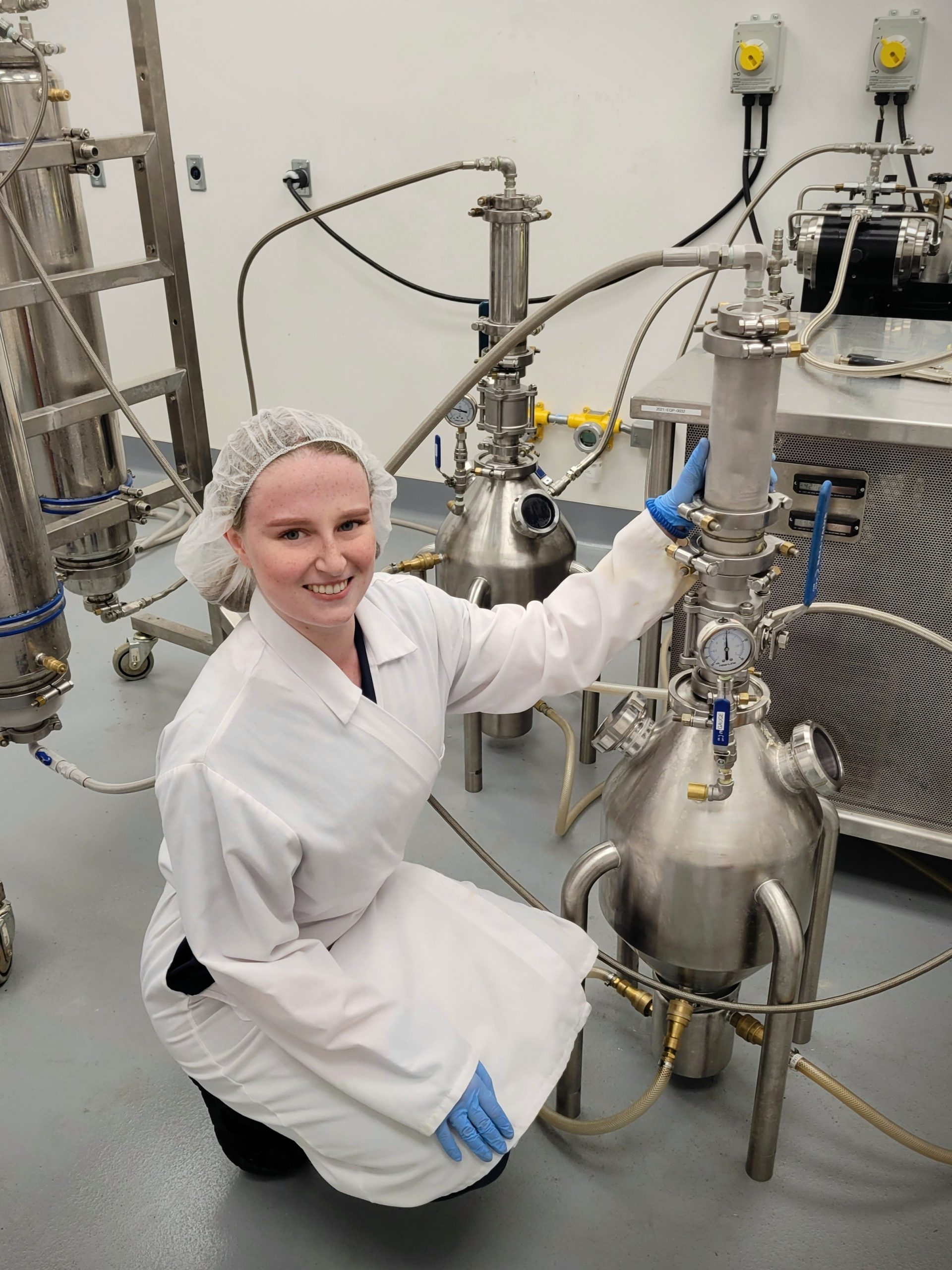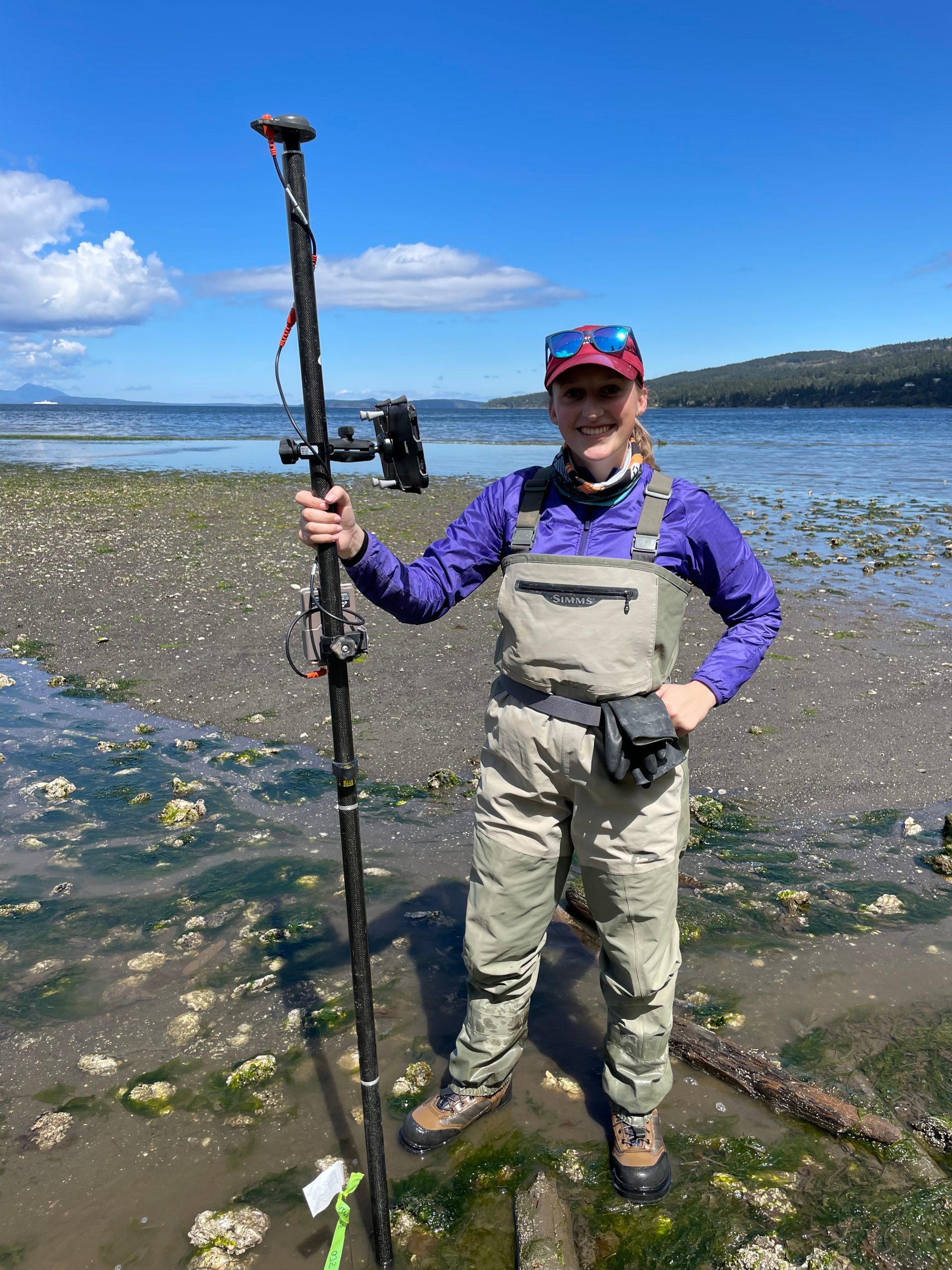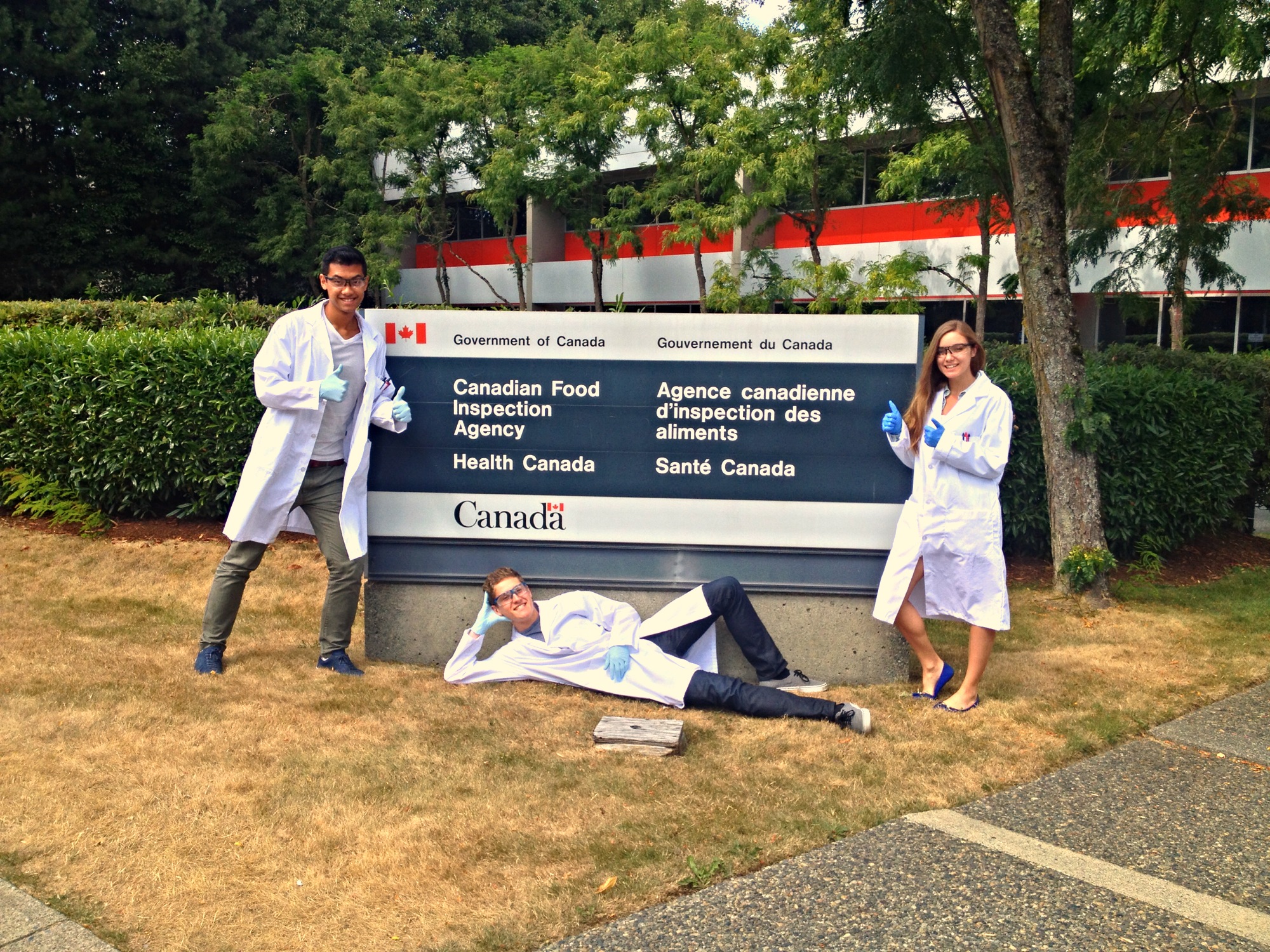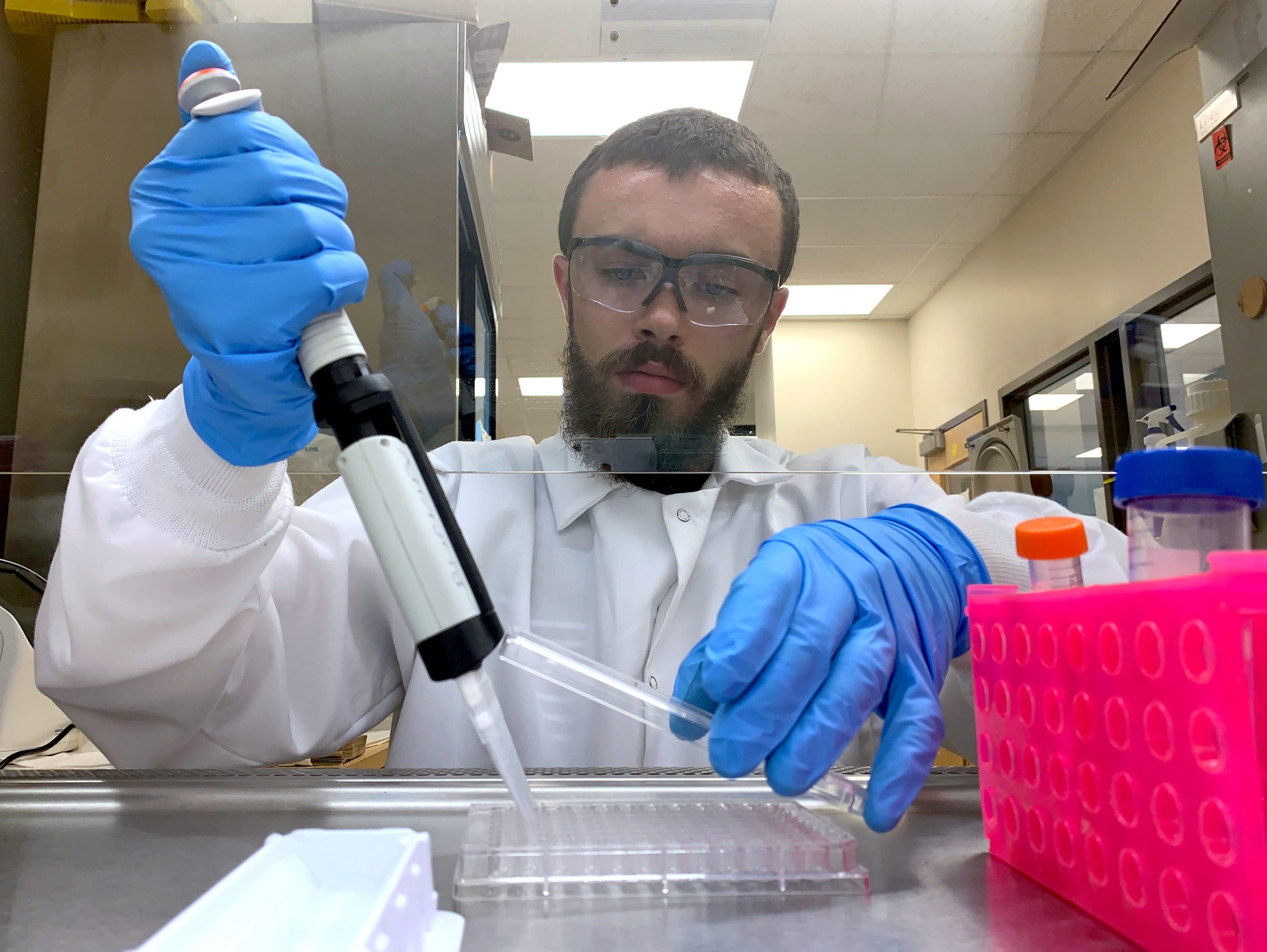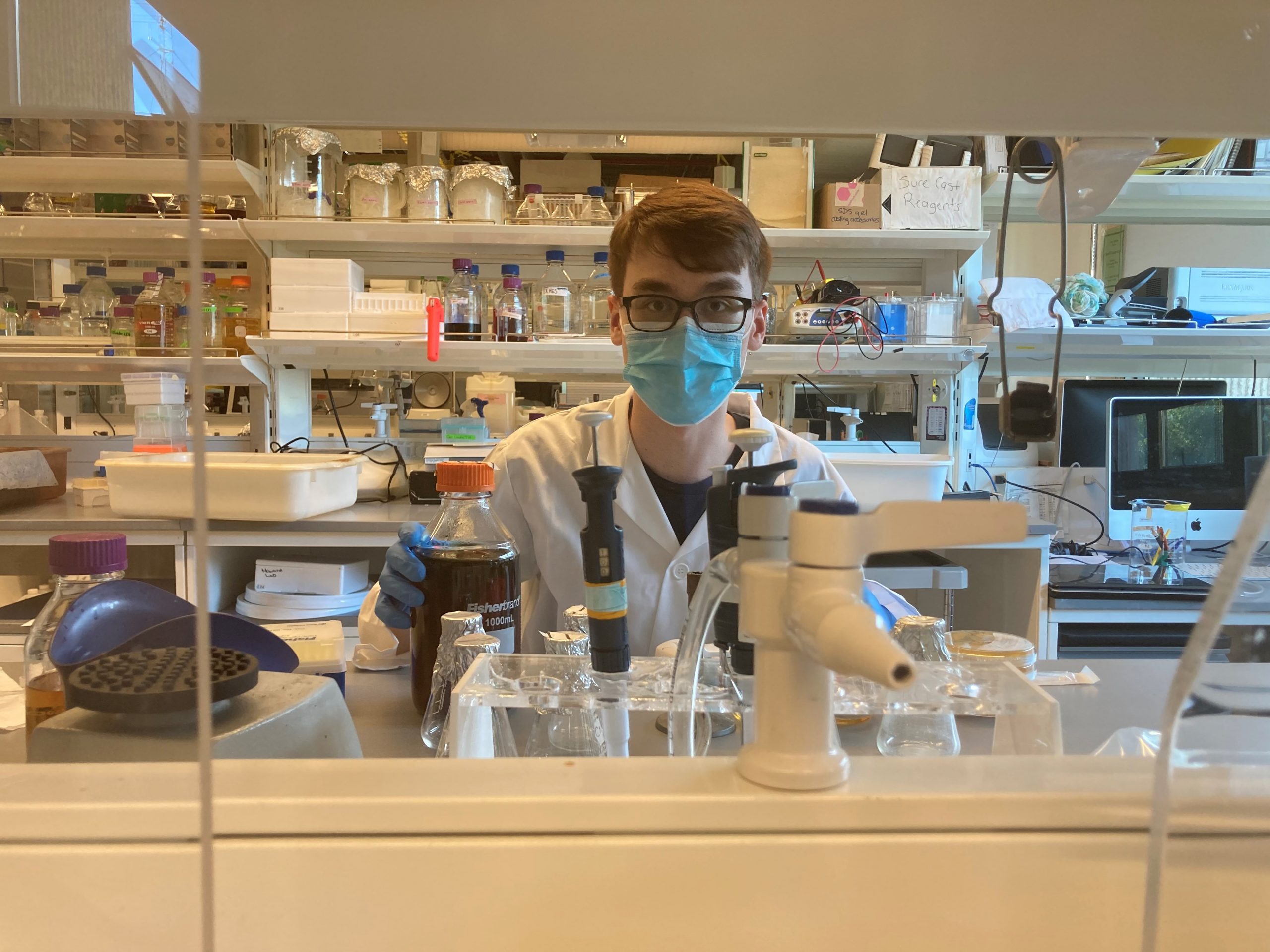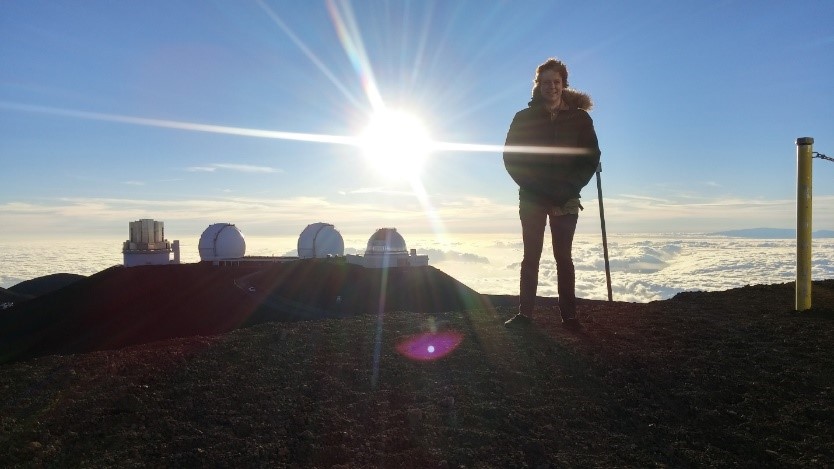
by Heather Croft | Mar 15, 2023
- Astronomy intern – Gemini Observatory
- Geodynamics computer modelling assistant – Natural Resources Canada
- PMT test facility researcher – TRIUMF
- Da Vinci surgical system software/data intern – Intuitive Surgical Inc.
- Astronomy research assistant – National Research Council of Canada
- Remote sensing support – University of Victoria
- Youth STEM instructor – Science Venture
- Oceanographic data processing – Tokyo University of Marine Science and Technology
- Medical physics research assistant – BC Cancer Agency
- Geophysical assistant – GEOMAR
- Academic research (Theoretical and applied)
- Astronomy (Theoretical and applied)
- Computational and Quantum Physics
- Renewable energy research and production
- Outreach and education
- Geophysics
- Nuclear physics
- Oceanography
- Energy research
- Communications
- Medical research
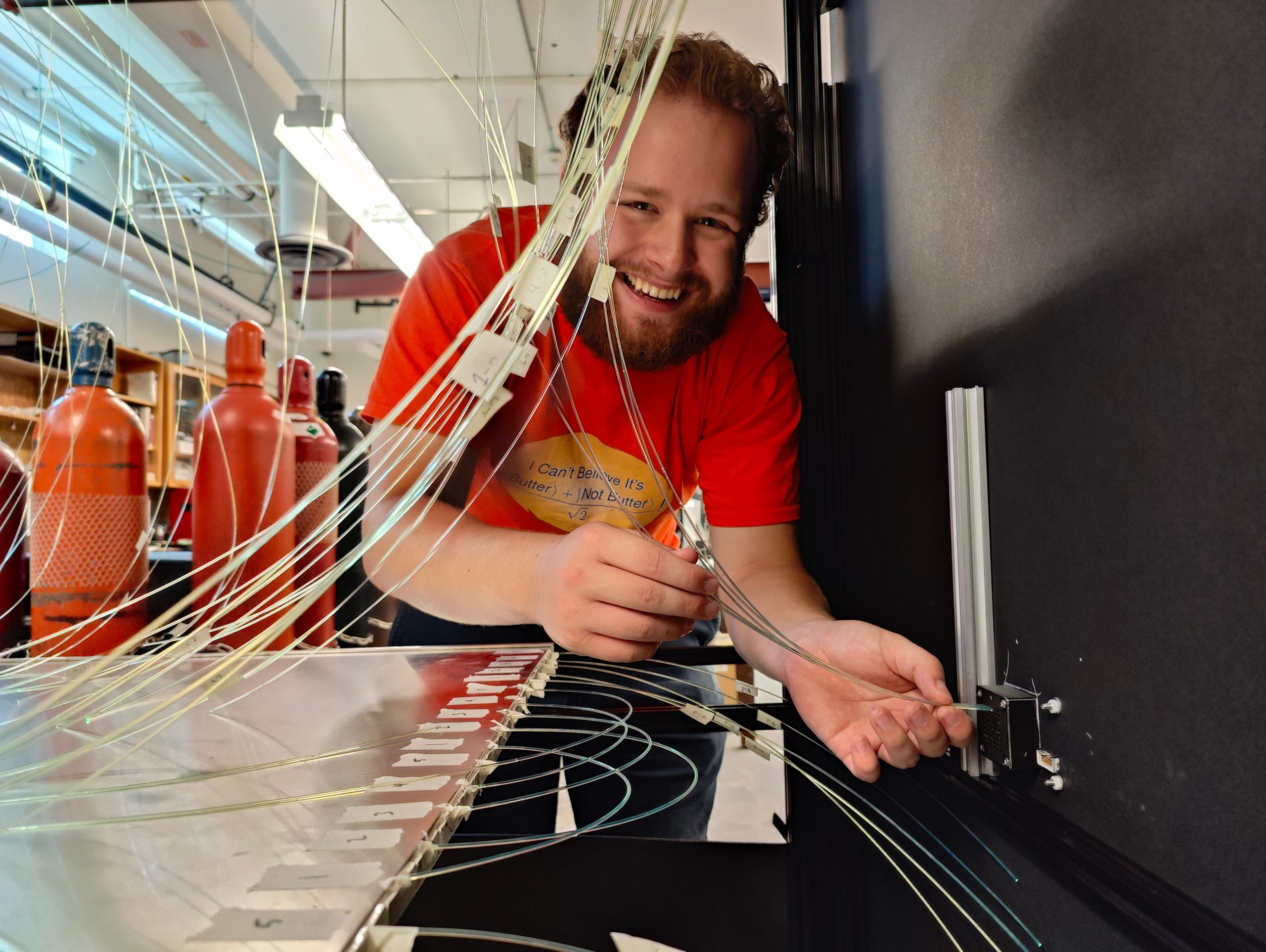
- use analytical methods to study, explain and predict the workings of the physical world
- understand mechanics, relativity, oscillatory and wave motion
- understand electricity and magnetism, optics and thermodynamics
- understand quantum and particle physics, and statistical mechanics
- use mathematics to describe the physical world
- make explicit assumptions and approximations
- develop mathematical models that produce outcomes or behaviours of physical systems
- plan, carry out, analyze and report the results of an experiment or investigation
- assess uncertainties and compare results with expected outcomes and relate conclusions to physical models
- compare the results of predictive calculations with those from experimentation or observation
- apply the principles of physics, astronomy and astrophysics and medical physics
- apply the principles of astronomy and astrophysics to geophysics, ocean and atmospheric physics, and solid-state physics
Scientific method
- use experimental techniques to solve problems
- search and assess scientific literature
- gather evidence through observation and experimentation
- analyze data
- formulate a clear, answerable question
- use inductive reasoning and deductive methods to develop a testable, falsifiable hypothesis and predict expected results
- design quantitative approaches and experiments to test and evaluate hypotheses
- observe and record the results of research
- use mathematical and statistical methods and analytical tools to evaluate data
- draw conclusions
- communicate results and ideas in scientific reports and papers and oral presentations
- identify the need for further research
- communicate effectively
Computer skills
- develop and use scientific software to support research
- create, modify and use scientific software
- develop and use computer modeling as a proxy for physical experimentation
- develop and use computational methods to analyze large data sets
Field work
- observe the behaviour and properties of subjects and phenomena
- make measurements of subjects, phenomena or their environment
- identify and collect samples for analysis
- use field equipment, tools and machinery
Lab work
- use safe and careful practices
- keep accurate lab records
- take precise measurements and identify potential sources of error
- troubleshoot and optimize methods and techniques
- develop methods and procedures
- analyze, change and characterize compounds, samples or devices
- use lab instruments
- maintain, calibrate and troubleshoot equipment
- evaluate lab data
Education and training
- teach science at a level appropriate to the audience
- train and supervise others to perform scientific and lab procedures
by Heather Croft | Mar 15, 2023
- Academic research (Theoretical and applied)
- Data analysis
- Software development / software engineering
- Mathematical modelling
- Control statistics
- Logistics
- Outreach and education
- Government and policy
- Natural resource management
- Health research and and Health information systems
- Geographic information systems
- Communications
- Medical statistics and biostatistics
- Finance and actuary related work
- Junior Analyst—BC Ministry of Health (Health Sector Information, Analysis and Reporting)
- Environmental assessment co-op student—Environment and Climate Change Canada
- Investment operations intern—BC Investment Management Corp.
- Junior developer—Workday (MediaCore)
- Modelling and analytics support technician—Alberta Environment and Parks
- Quality assurance analyst co-op student—RevenueWire
- STEM outreach assistant—African Institute for Mathematical Sciences
- Student research assistant in bioinformatics—Agriculture and Agri-Food Canada
- Survey methodology co-op student—Statistics Canada
- Toronto investments analyst—Manulife Financial
Logic and critical thinking
- work with abstract reasoning and be able to make ideas precise by formulating them mathematically or statistically
- analyze, test, and interpret technical arguments, and form independent judgements
Problem solving
- use mathematics and statistics to help guide possible lines of inquiry
- solve complex problems by dividing them into simpler sub-problems
- gather and organize relevant qualitative and quantitative information
- sharpen or focus mathematical or statistical questions as a problem-solving strategy
- identify and assess methods of analysis
- construct abstract models using mathematical and statistical tools
- use computers and software
- engage your creativity in the quest for novel solutions
- document problem-solving steps and reliably certify the validity of your methods and results
- interpret and evaluate
Communication
- work effectively in a multi-disciplinary environment
- accept comments and feedback, and learn from them
- explain mathematical or statistical concepts to non-experts
- justify choices made during problem solving and interpretation of results
- present the results and assessment of a problem-solving strategy
- clearly communicate logical arguments to a range of audiences
Mathematical, statistical and numerical literacy
- recognize the value of mathematical and statistical thinking, training and approach to problem solving
- be familiar with how mathematics or statistics helps accurately explain abstract or physical phenomena
- recognize and appreciate the connections between theory and applications
- read mathematical and statistical literature, including survey articles, scholarly books, and online sources
- be able to independently expand your mathematical or statistical expertise

by Heather Croft | Mar 15, 2023
- Climate change
- Earthquakes
- Mining
- Air and water quality
- Environmental monitoring
- Ecology
- Wildlife assessment and tracking
- Botany
- Upstream environmental operation, water team – Husky Energy Inc.
- Research geomorphologist assistant – BC Ministry of Forests, Lands and Natural Resource Operations
- Laboratory assistant, petrophysics – Natural Resources Canada
- Oceanographic data processing – Tokyo University of Marine Science and Technology
- Coastal naturalist – Calliope Consulting Inc.
- Junior project officer – Aboriginal Affairs and Northern Development Canada
- Geologist co-op student – Teck Ltd.
- Underwater acoustic analyst – Ocean Networks Canada
- Environmental co-op student – National Defence and the Canadian Armed Forces
- Digital remote sensing research – Natural Resources Canada
Earth and ocean sciences
- oceans and atmosphere and the dynamic processes that drive ocean and atmosphere circulation, weather patterns and global climate change
- the internal and external processes that shape the earth and its landscapes
- the nature of tectonic forces, earthquakes and volcanoes
- rocks and minerals and mountain building
- the physical, chemical and biological nature of sediments at sea and on the land
- geometric, kinematic and dynamic analysis of deformation structures in rock bodies
- mineralogy and optical mineralogy
- study natural hazards such as earthquakes, volcanoes, tsunami, landslides, flooding, extreme weather and meteor impacts
- the scientific basis of topics and issues affecting the world’s oceans
- use earth science to explore areas such as geoscience, geophysics, ocean-atmosphere, geochemistry, life on earth or ocean science
Scientific method
- gather evidence through observation and experimentation
- analyze data, define a research problem and predict the outcome
- use inductive reasoning and deductive methods to form testable, falsifiable hypothesis
- design an approach or experiment to test and evaluate hypotheses
- observe and record the results of research
- analyze results using chemistry knowledge and mathematical techniques
- draw conclusions
- communicate the results and identify the need to conduct further research
Computer skills
- create and modify scientific software
- use science software
- develop and use computer modeling as a proxy for physical experiments
- develop and use computational methods to analyze large data sets
Field work
- observe behaviour or properties of subjects or phenomena
- measure subjects or phenomena or their environment
- identify and collect samples for analysis
- use field equipment, tools and machinery
Lab work
- take accurate measurements
- follow the methods and techniques relevant to chemistry
- develop and optimize methods and techniques
- analyze, make, purify, modify and characterize compounds, samples or devices
- use, maintain and troubleshoot lab instruments
- troubleshoot procedures
- use safe and careful practices
Education and training
-
- teach science at a level appropriate to the audience
- assess achievement of learning outcomes
- train and supervise others to perform scientific or lab procedures
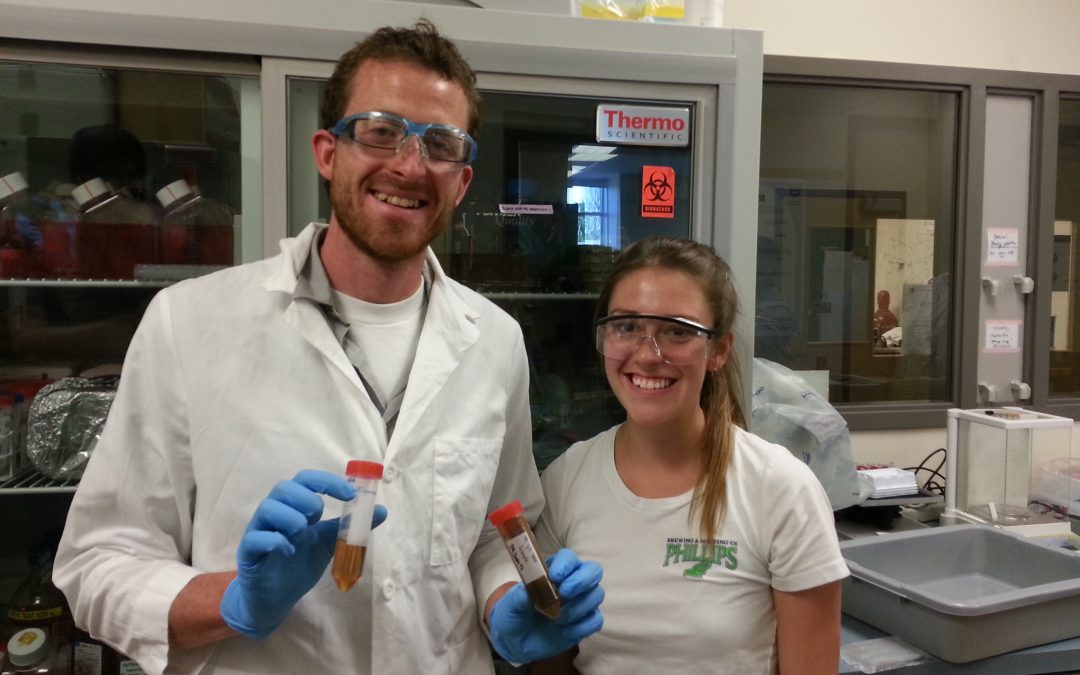
by Heather Croft | Mar 15, 2023
- Viticulture research assistant – Agriculture and Agri-Food Canada
- Formulation and analytical chemist – EcoSafe Natural Products Inc.
- Process operator – Teck Ltd
- Outreach instructor – Actua
- Organics, advanced extractions – ALS Laboratory Group
- Structure, properties and performance Researcher – Automotive Fuel Cell Cooperation
- Medicinal chemistry researcher – Centre for Drug Research and Development
- Analytical chemistry student – PBR Laboratories Inc
- Academic research (Theoretical and applied)
- Pharmaceutical and biotechnology companies
- Breweries, wineries and distilleries
- Computational and Quantum Chemistry
- Government agencies
- Food, chemical and equipment manufacturers
- Natural resources management and research
- Analytical Chemistry work (QC, R&D)
- Renewable energy research and production
- Outreach and education
- Formulation
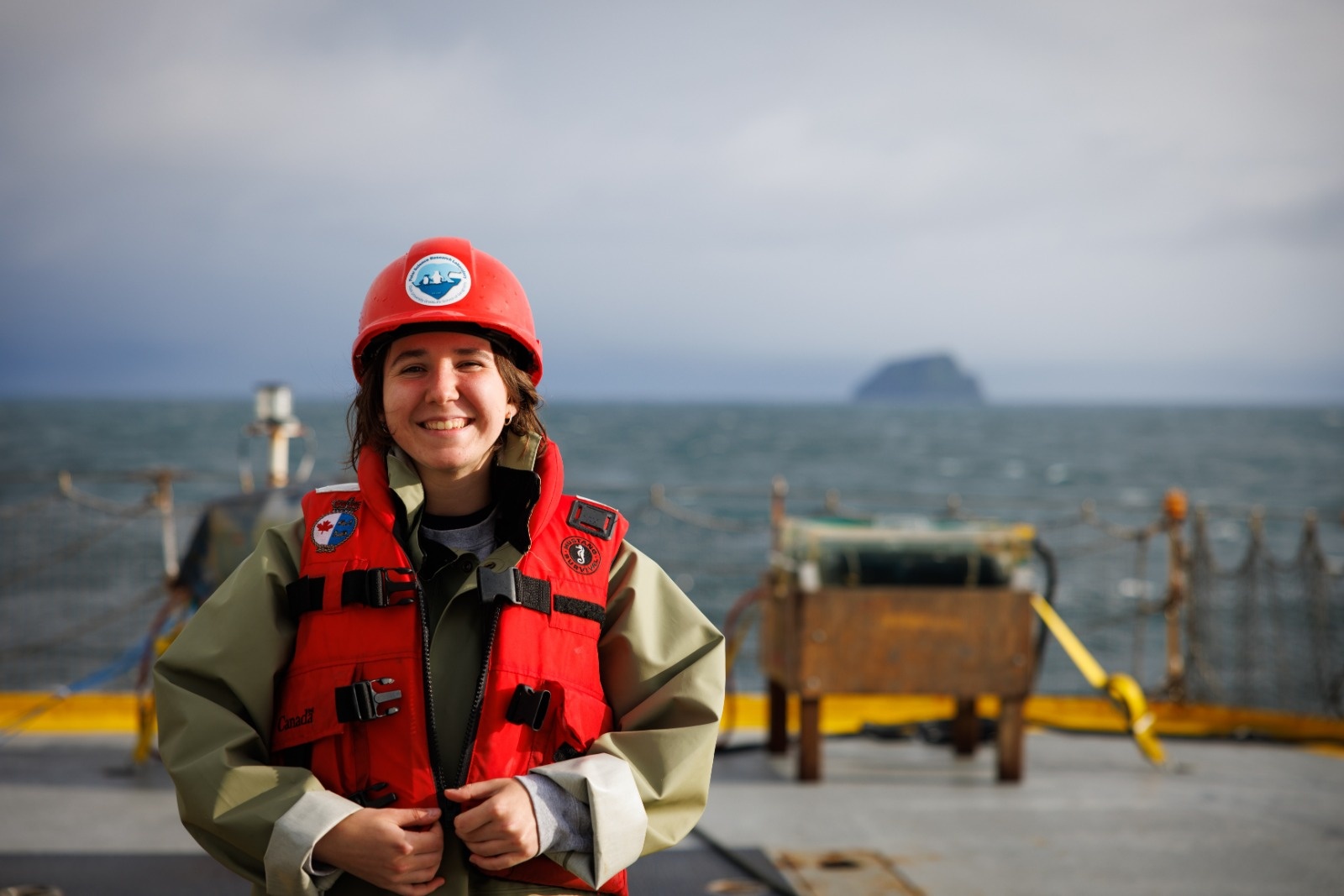
Chemistry knowledge
- understand the major systems of nomenclature used in chemistry
- understand bonding and electronic structure and how they relate to the shape and reactivity of chemical compounds
- understand how bonding and electronic structure impact the chemical, physical and electronic properties of molecules
- understand thermodynamics, reaction kinetics and reaction mechanisms
- create new compounds based on your knowledge of inorganic and organic chemical reactions
- understand how to separate, detect and measure chemical compounds
- understand how to use quantitative and qualitative evaluations to analyze compounds or materials
Scientific method
- use experimental techniques to solve problems
- search and assess scientific literature
- use inductive reasoning and deductive methods to develop a testable, falsifiable hypothesis and predict expected results
- design quantitative approaches and experiments to test and evaluate hypotheses
- gather evidence through observation and experimentation
- understand research and propose steps to further the goals of an experiment
- communicate results and ideas in scientific reports, papers and oral presentations
Lab skills
- use safe and careful practices
- keep lab records
- analyze, make, purify, modify and characterize compounds, samples or devices
- use lab instruments
- calibrate, maintain and troubleshoot instruments
- follow standard methods and procedures for lab experiments
- take accurate measurements and identify potential sources of error
- troubleshoot and optimize methods and techniques
- develop methods and procedures
- assess lab data
Computer skills
- use scientific software
- use computer modeling as a proxy for physical experiments
- create and modify scientific software
- develop and use computational methods to analyze large data sets
Education and training
- teach chemistry and science at a level appropriate to the audience
- assess achievement of learning outcomes
- train and supervise others to perform scientific or lab procedures
Field work
- observe behaviour or properties of subjects and phenomena
- measure subjects or phenomena or their environment
- identify and collect samples for analysis
- use field equipment, tools and machinery
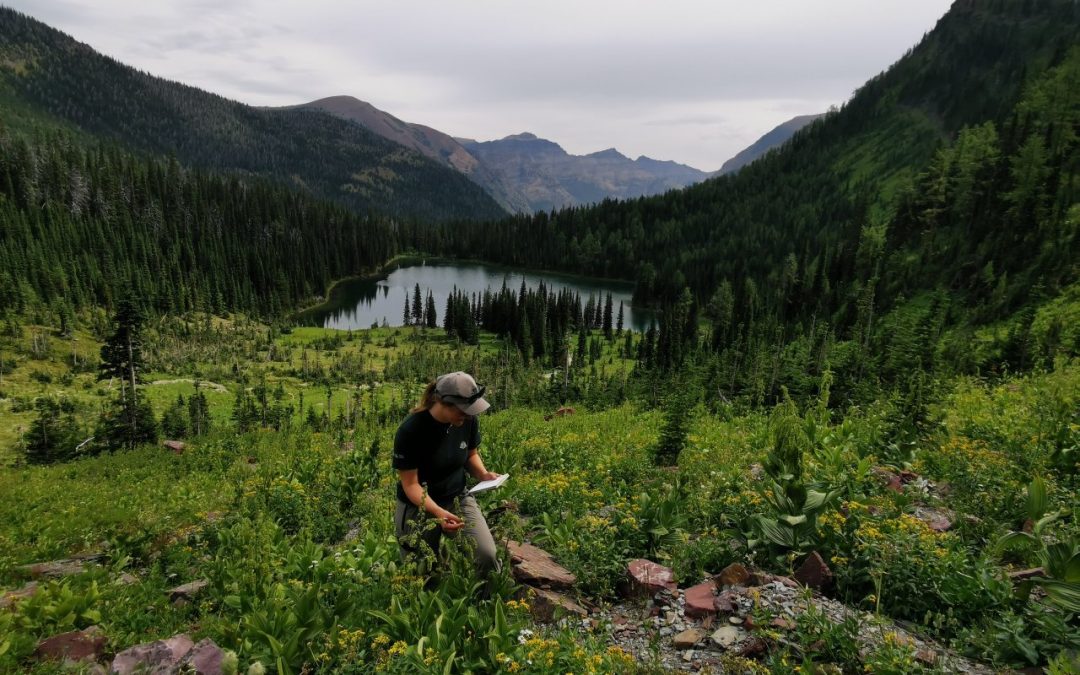
by Heather Croft | Mar 15, 2023
- Assistant wildlife biologist – Parks Canada (Lake Louise, Yoho and Kootenay National Parks)
- Environment regulatory and sustainability co-op student – Devon Energy Corporation
- Eulachon assessment and pelagic ecosystems – Fisheries and Oceans Canada (Pacific Biological Station)
- Junior wildlife rehabilitator – BC SPCA Wild Animal Rehabilitation Centre
- Biological weed and pest control assistant – Cultural Agricultural Bureau International (Switzerland)
- Marine biology
- Fisheries and forestry
- Resource management
- Pest management
- Environmental monitoring
- Ecology
- Wildlife assessment and tracking
- Botany
- Genetics and microbiology
- Medical research
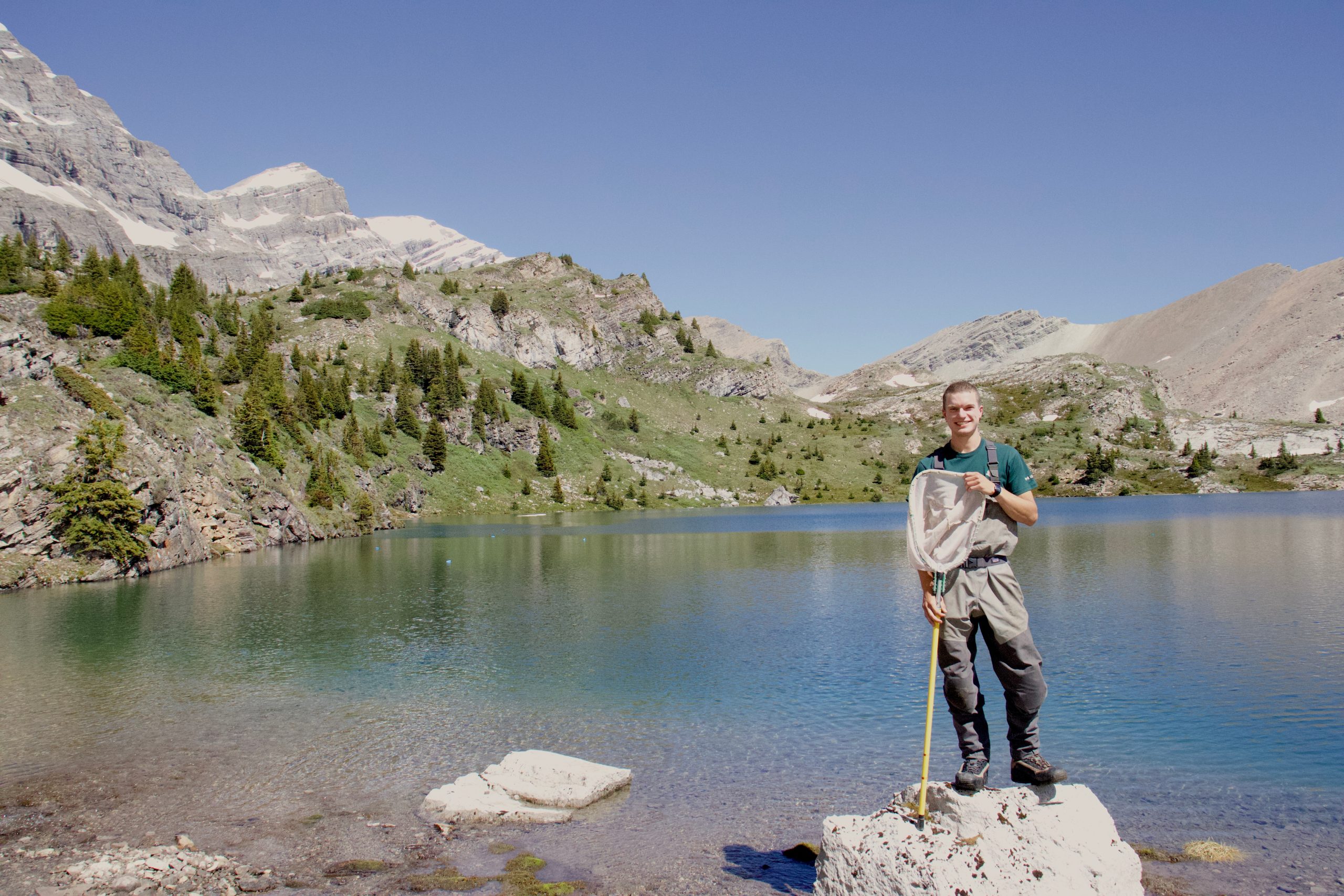
Biology knowledge
- understand the biological diversity of plants and animals
- understand genetics and the mechanisms leading to diversity (Mendelian, molecular and population genetics)
- use genetic analysis on a biological problem
- apply the principles of evolutionary theory and natural selection in creating diversity
- understand plant and animal structure and function
- analyze biological problems at the genetic, molecular, developmental, organismal and ecological levels
- use the concepts and tools of mathematics, chemical science and physical science to understand biology
- understand the history of ideas in biology
- consider the larger role of biology in society
Research skills
- understand and use the scientific method and experimental techniques to solve specific problems
- search and assess scientific literature
- work with new and emerging concepts
- gather evidence through observation and experimentation
- use inductive reasoning and deductive methods to develop a testable, falsifiable hypothesis and predict expected results
- design quantitative approaches and experiments to test and evaluate hypotheses
- observe and record the results of research
- use mathematical and statistical methods and tools to evaluate data
- draw conclusions
- communicate results and ideas clearly in scientific reports, papers and oral presentations
- understand research and propose steps required to further the goals of an experiment
Field skills
- practice safety at all times
- maintain and operate field equipment
- observe the natural environment
- identify species by sight, sound, scat or footprint
- handle organisms and collect data such as sex, length, weight, height, tissue or blood
- keep records in the field
- use proper field sampling protocols
Lab skills
- use safe and careful practices
- keep lab records
- use sterile and aseptic techniques
- use pipetting technique
- follow standard methods and procedures for lab experiments
- take accurate measurements and identify potential sources of error
- troubleshoot and optimize methods and techniques
- develop methods and procedures
- analyze, make, purify, modify and characterize compounds, samples or devices
- use lab instruments
- calibrate, maintain and troubleshoot instruments
- assess lab data

by Heather Croft | Mar 15, 2023
- Monitor industrial fermentation processes
- Test clinical, environmental, food and water samples for microbial or chemical contamination
- Conduct original research using modern biochemistry, immunology, molecular biology, genomics and proteomics technology
- Develop tests and assays for detecting molecules of interest
- Academic research labs and institutes
- Pharmaceutical and biotechnology companies like Immunoprecise, Eli Lilly, Bayer, Eupraxia, Chinook and Zymeworks
- Breweries, wineries and distilleries like Hoyne Brewing, Category 12 and Tinhorn Creek
- Government agencies like BC Cancer Research Agency, Agriculture and Agrifood Canada, VIDO Intervac, the National Microbiology Laboratory, the Canadian Food Inspection Agency, and the National Research Council
- Food, chemical and equipment manufacturers like PALL, Lallemand, Thrifty Kitchens, and Agropur
- Health Authorities
- Clinical practices
- Clinical Research Organizations like ICON plc
- examine the structure and function of proteins
- understand the principles and analysis of kinetic mechanisms
- use proteomics and protein interactions in binding and catalysis
- understand the structure and function of carbohydrates
- understand the structure and function of lipids
- examine biological membranes and bioenergetics
- understand metabolic processes and their control
- understand the structure and function of DNA, RNA and genes
- understand gene expression in eukaryotes
- explore the biochemical basis of signal transduction
- understand prokaryotic and eukaryotic cell structure and function
- understand the physiology and growth of microorganisms
- understand the molecular taxonomy of microorganisms
- understand microbial genetics and genomics
- study microbial cell biology using molecular approaches
- explore immunology, generation of antibody diversity, immune effect or mechanisms and immunological principles
- understand molecular virology and animal viruses
- examine developments and uses of molecular biotechnology
- understand microbial pathogenesis and the molecular mechanisms of pathogenesis
Lab work
- use safe and careful practices
- keep accurate lab records
- use sterile and aseptic techniques
- use pipetting technique
- perform lab experiments following standard methods and procedures
- take accurate measurements and identify potential sources of error
- troubleshoot and optimizes methods and techniques
- develop methods and procedures
- analyze, make, purify, modify and characterize compounds, samples or devices
- use lab instruments
- critically evaluate lab data
- search and critically evaluate scientific literature
- understand new and emerging uses of biochemistry, microbiology and biotechnology
- gather evidence through observation and experimentation
- analyze data and formulate a clear, answerable question
- use inductive reasoning and deductive methods to develop a testable, falsifiable hypothesis and predict expected results
- design quantitative approaches or experiments to test and evaluate hypotheses
- observe and record the results of research
- use mathematical and statistical methods and analytical tools to evaluate data
- draw conclusions
- communicate results and ideas in scientific reports, papers and oral presentations
- identify the need to do further research
- write and speak effectively
- create and modify scientific software
- use scientific software
- develop and use computer modeling as a proxy for physical experimentation
- develop and use computational methods to analyze large data sets
Field work
- observe behaviour or properties of subjects and phenomena
- make measurements of the subjects or phenomena or their environment
- identify and collect samples for analysis
- use field equipment, tools and machinery
Education and training
- teach science at a level appropriate to the audience
- assess achievement of learning outcomes
- train and supervises others to perform scientific procedures

by Heather Croft | Mar 15, 2023
Students are at the heart of our work
- We strive to support student success academically, professionally and personally.
- We facilitate positive learning opportunities for students, preparing them for the future of work.
- We provide tools and opportunities empowering students to transform their lives.
This value in action
- LISTEN: We listen to our students needs and meet them where they are at.
- COMMUNICATE: Clear is kind – we communicate clearly, timely, and respectfully.
- CONNECT: We build relationships with our students and employers to facilitate success.
- LEARN: We commit to being continuous learners to be awesome leaders in our field.
Collaboration leads to excellence
- We build on our successes and failures in pursuit of a common goal.
- We seek responsive, synergistic and innovative approaches to our work and our partnerships.
- We strive to be leaders in work integrated learning, locally, nationally and internationally.
This value in action
- INTERNAL SHARING: We commit to sharing of better practices within our team and UVic Co-op community.
- EXTERNAL SHARING: We commit to sharing of knowledge and better practices from communities external to UVic Co-op.
- FEEDBACK: We commit to creating opportunities and the conditions for giving and receiving feedback.
Diversity is strength
- We value and encourage diverse cultural and individual perspectives.
- We strive to create a welcoming and inclusive organizational culture.
- We value personal growth and reflection as we strive toward our diversity and inclusion goals.
This value in action
- AWARENESS: We acknowledge that due to varied life experiences, when working with others, their views have as much value as our own.
- SKILLS: We actively partner with employers to foster diversity in recruitment and advocate for the integration of equitable practices within all organizations. We foster an inclusive workplace by offering guidance to overcome cultural barriers, accommodating diverse needs, and promoting mutual understanding and respect.
- LEARNING: We foster a safe environment of continuous growth and development by actively seeking opportunities to educate ourselves and enhance our cultural competencies.
I offer tailored student support that embraces diversity and intersectionality to cultivate a learning environment that prioritizes growth and understanding
- ATTITUDE: We ensure all individuals feel valued and included by advocating for equity, diversity and inclusion through promoting equal opportunities, embracing diverse perspectives, and implementing inclusive practices. We recognize the efforts of individuals and celebrate small wins in our journey towards creating an equitable, diverse, and inclusive culture. We will take responsibility for our own limitations and will be gracious with others when they do the same.
Community supports us and we support community
- We develop sustainable relationships with colleagues, students, alumni and organizations.
- We contribute to the university’s goals and to the mosaic of the community.
- We impact sustainable economic growth and social development for a more resilient community.
This value in action
- We will CONNECT with faculty and departments to update and consult with them about co-op placements, challenges, event, students, … so that we can best SUPPORT co-op students.
- We will SUPPORT students by creating space and time for ENGAGEMENT, and we will clearly communicate with students about options and expectations.
- We will ENGAGE with current and future co-op employers using strategies like job development, initiatives, networking events, industry specific events, and work site visits.
- We will COLLABORATE with others to provide successful WIL opportunities.
Ethics, Professionalism and Pedagogy underpin our work
- We are guided by integrity, honesty, and trust in all we do with students, employers and colleagues.
- We strive for transparency as we work toward shared goals.
- We are educators and coaches, committed to professional practice.
This value in action
- TAKE A QUICK CHECK: Publicity, Universality, Justice
- We behave with COMPASSION towards ourselves and others. We are not afraid to say sorry when we make a mistake.
- We SHARE knowledge and learn from others like labour market info and research, pedagogical trends, coaching, and administrative standards.
- We seek input and engagement from the community of employers, alumni, students. Asking for FEEDBACK and taking student feedback and suggestions seriously to continue to improve our work.






